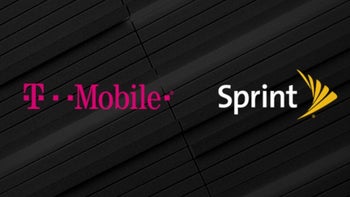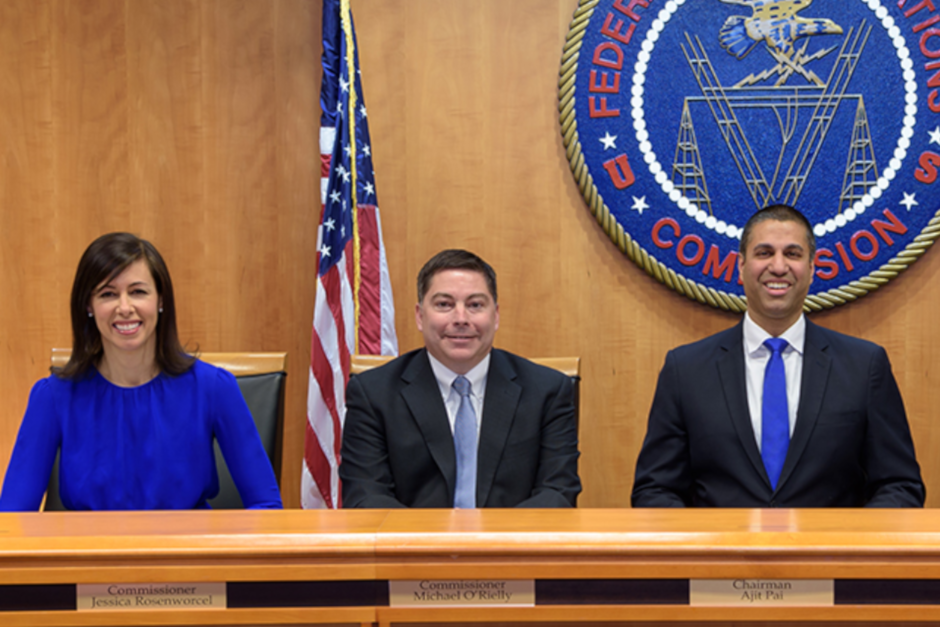T-Mobile clinches FCC support for Sprint merger; formal vote could take place next week

FCC chairman Ajit Pai recently chastised Sprint. The carrier sought payment from the U.S. government for 885,000 consumers who were subscribed to the subsidized Lifeline program but did not use the service. Pai scolded the carrier saying "It’s outrageous that a company would claim millions of taxpayer dollars for doing nothing. This shows a careless disregard for program rules and American taxpayers." As ominous as that sounded at the time for FCC approval of the T-Mobile-Sprint merger, Bloomberg reports today that three commissioners including Pai have decided to vote "Yes" on the deal. Considering that there are only five commissioners sitting on the regulatory agency, that would seem to guarantee that the FCC will officially greenlight the $26.5 billion transaction.
The trio of commissioners voting to approve the merger are the agency's three Republican members; the law states that no more than three out of the FCC's five commissioners can belong to the same political party. The two Democrats on the panel have yet to vote, but both have asked for a delay. With the three Republican votes in favor of the merger, a formal vote must be held by October 9th or October 16th if an extension is requested.
The Sprint-Dish Network deal is contingent on T-Mobile closing the merger with Sprint
Announced on April 28th, 2018, the merger of the nation's third and fourth-largest carriers faced an uphill battle. Back in 2014, T-Mobile and Sprint floated the idea of a merger to the FCC and the Justice Department and were told that such a deal would not get approval. Needless to say, no merger was announced at the time. And with the current deal at the risk of falling apart earlier this year,T-Mobile made some concessions to the FCC and promised that it wouldn't raise prices for three years after the merger closes; it also agreed to cover 97% of the U.S. with low-band 5G (85% of the rural population) and cover 75% with mid-band 5G no later than three years after the deal is completed. The promises converted Chairman Pai who announced his support for the transaction.
Getting support from the Justice Department required that T-Mobile and Sprint find a replacement for the latter to keep the number of major wireless providers at four. So once the T-Mobile-Sprint merger closes, Sprint will complete a transaction with Dish Network. The latter will become the "fourth nationwide facilities-based network competitor" after buying Sprint's prepaid services including Boost Mobile and Virgin Mobile. Dish will also receive 14MHz of Sprint's 800MHz spectrum, some retail locations and access to certain cell sites. In order to sell wireless service to U.S. consumers while building out its own 5G stand-alone network, Dish will sign an MVNO deal with T-Mobile.

The FCC could formally vote for the merger as soon as October 9th
While critics of the merger claim that it will lead to job losses (a claim strongly denied by T-Mobile CEO John Legere) and higher prices, those in favor of it point out that it could help the U.S. quickly complete its first nationwide 5G network. T-Mobile hopes to deliver that next year and is counting on the merger to take control of Sprint's 2.5GHz mid-band spectrum. The plan is for these holdings to combine with T-Mobile's low-band 600MHz spectrum and its ultra-high mmWave airwaves to create the first coast-to-coast 5G network in the states. 5G is extremely important as the next generation of wireless connectivity should be able to give the economy a boost; the faster download data speeds (10 times faster than 4G LTE) should lead to the creation of new industries, products, and services that cannot even be conceived of.
Once the FCC votes on the merger, the one remaining hurdle to clear will be the lawsuit filed by a number of state attorneys general and the AG of Washington D.C. seeking to block the deal. A trial isn't expected to begin until December 9th. While it is unclear whether T-Mobile is in active settlement talks with the plaintiffs, a previous attempt to reach an agreement between the carrier and the states failed. One person familiar with the talks said that the two sides were "miles apart."










Things that are NOT allowed: